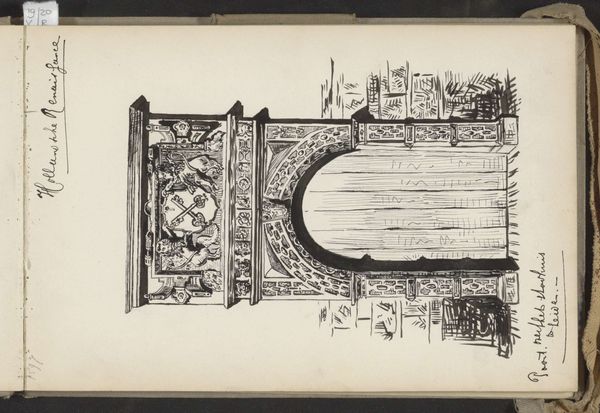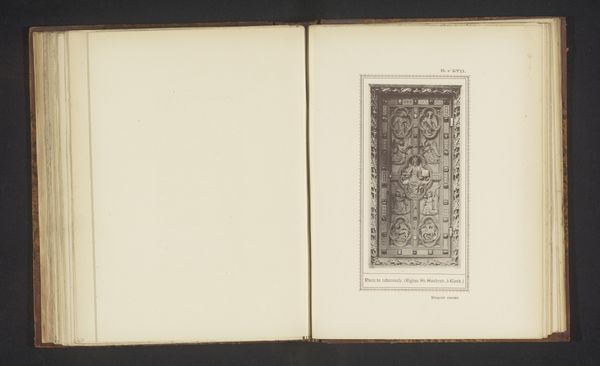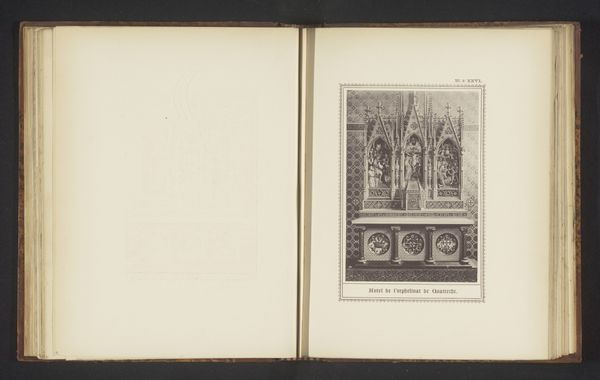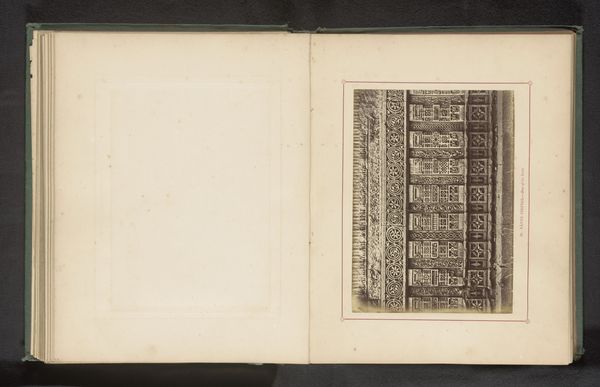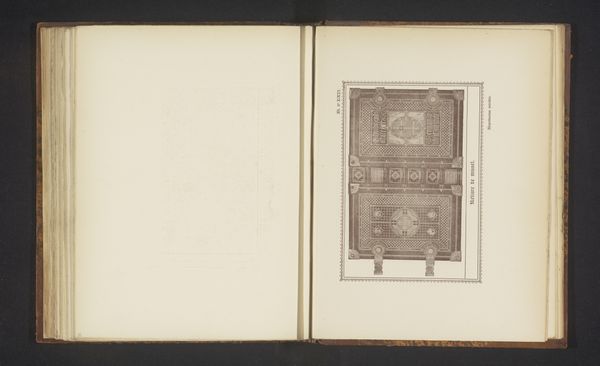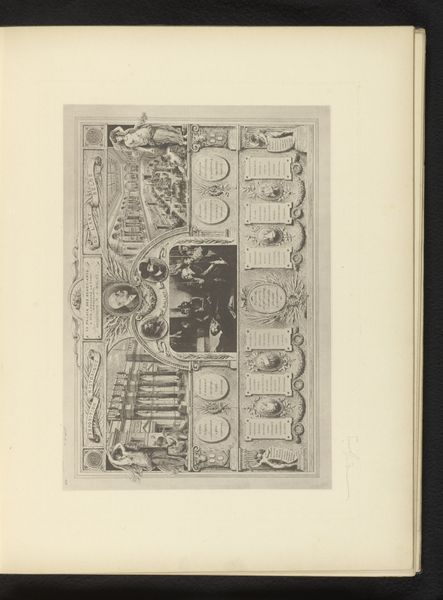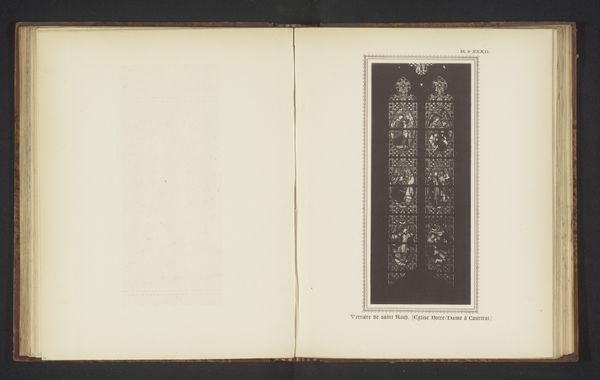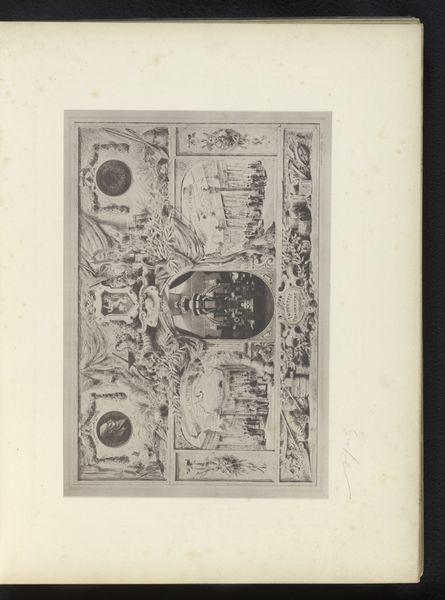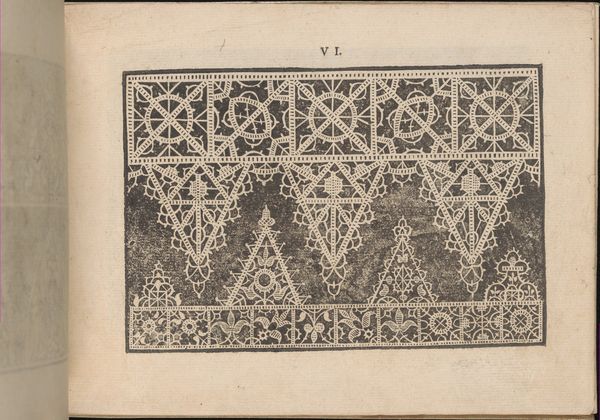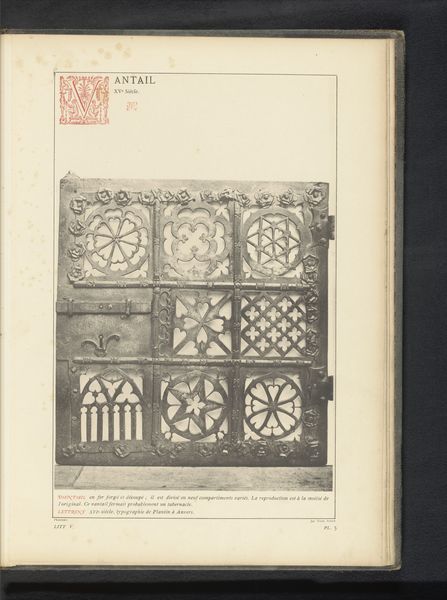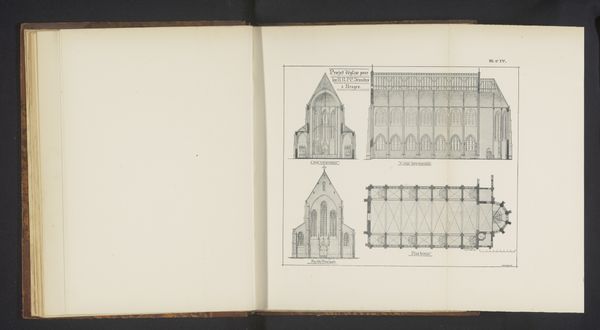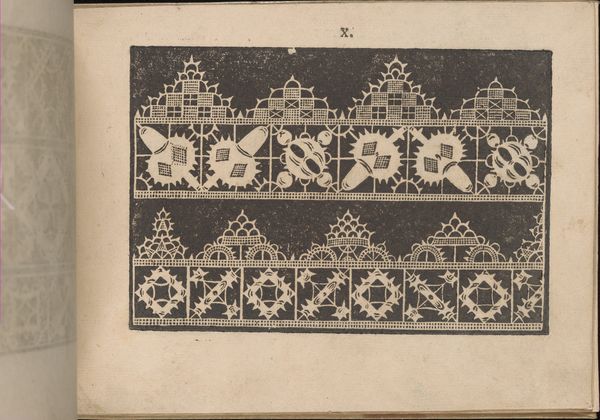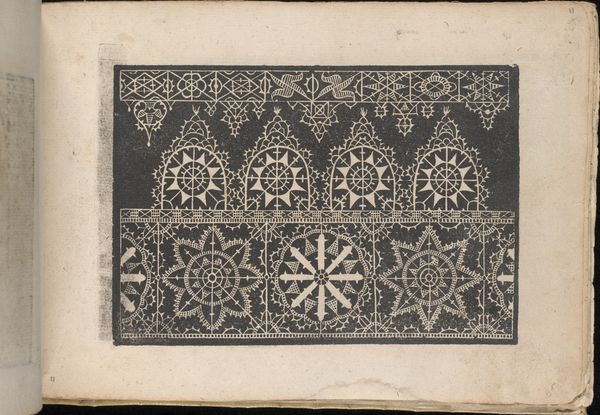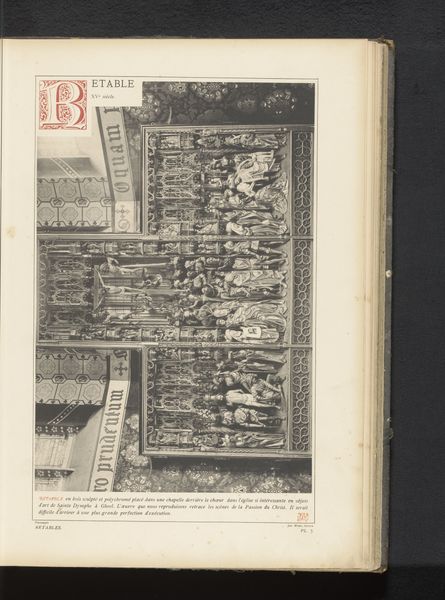
Gebrandschilderd raam in het dwarsschip van de Onze-Lieve-Vrouwekathedraal in Antwerpen, België before 1896
0:00
0:00
drawing, print, paper, ink, engraving, architecture
#
drawing
#
medieval
#
pen drawing
# print
#
old engraving style
#
hand drawn type
#
paper
#
personal sketchbook
#
ink
#
hand-drawn typeface
#
pen-ink sketch
#
pen and pencil
#
pen work
#
sketchbook drawing
#
sketchbook art
#
engraving
#
architecture
Dimensions: height 253 mm, width 156 mm
Copyright: Rijks Museum: Open Domain
Here is a reproduction by Joseph Casier of a stained glass window in the transept of the Cathedral of Our Lady in Antwerp, Belgium. The print is a study in contrasts, using a limited grayscale to define its intricate geometric patterns and organic forms. The overall impression is one of ordered complexity, with the grid of square panels playing against the elaborate circular design at the top. Casier structures the composition around this juxtaposition of the geometric and the curvilinear, using it to create a visual push and pull. The grid, with its modular units, echoes the structural logic of the cathedral itself. Yet, the circular motif, bursting with floral and perhaps figurative elements, hints at a divine force that transcends such rigid order. This tension invites us to consider the symbolic language encoded within religious architecture. The grid might represent the earthly realm with human reason and construction, while the circle symbolizes the celestial, hinting at infinite knowledge and spiritual unity. The window, as a semiotic space, thus functions as a bridge between the human and the divine, capturing the cathedral's core function as a space for mediation between these two realms.
Comments
No comments
Be the first to comment and join the conversation on the ultimate creative platform.
